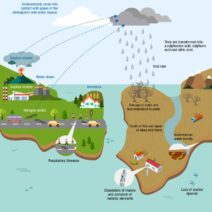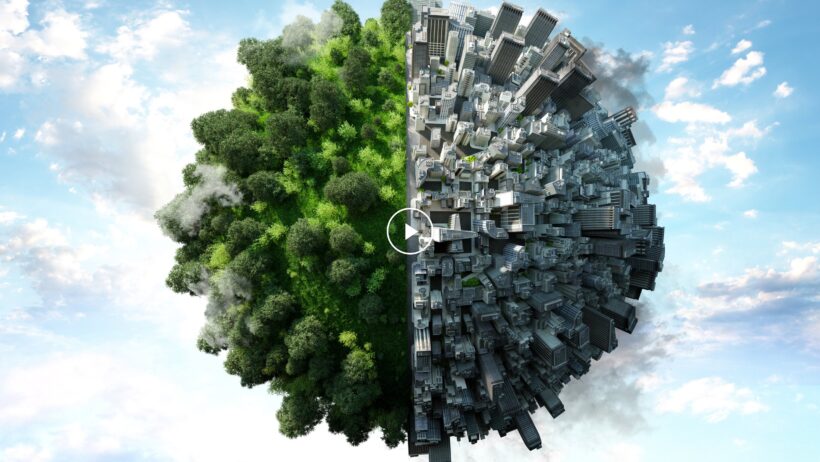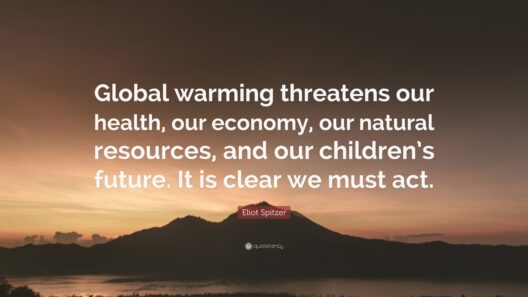The rise of global temperatures has engendered an array of anxieties, invoking the question: does global warming signify the apocalypse, or merely a new normal? This inquiry transcends a simplistic dichotomy; it invites contemplation of the profound implications tied to climate change and our adaptive responses to it. While some portray global warming as a harbinger of doom, others cautiously assert that humanity has the resilience to navigate this existential threat.
Initially, it is imperative to delineate the current climate crisis. Scientific consensus corroborates that human activity—primarily the combustion of fossil fuels and deforestation—has elevated atmospheric concentrations of greenhouse gases. These gases trap heat, leading to a cascade of climatic changes, including rising sea levels, extreme weather patterns, and disrupted ecosystems. These phenomena engender a sense of urgency among climate scientists and activists alike, fostering a perception that the planet is teetering on the brink of cataclysm.
Yet, this apocalyptic narrative, while compelling, can obscure the nuanced reality. It enthralls the imagination, engenders fear, and often fosters inaction—yet it is not the sole lens through which to consider our predicament. To assert that global warming will culminate in the end of civilization ignores the inherent adaptability of human societies. History chronicles myriad challenges, from plagues to natural disasters, each precipitating transformation rather than annihilation. Thus, viewing climate change as a potential catalyst for innovation and resilience could reshape the default narrative from one of despair to one of adaptive evolution.
The new normal, as it has been termed, implies adjusting to a world with ontological shifts. Instead of succumbing to fatalism, societies could leverage this period of transformation to innovate in sustainability practices. For instance, renewable energy technologies such as solar and wind power are no longer nascent; they have burgeoned into viable alternatives, challenging the hegemony of fossil fuels. This transition signifies more than just a change in energy sources; it prompts infrastructural redesign, job creation in green technologies, and a reimagining of consumer behaviors.
Moreover, the notion of a new normal implicitly emphasizes the importance of adaptation. Coastal communities grappling with rising sea levels are not merely passive victims; they are actively reconfiguring their landscapes through innovative engineering solutions or relocating infrastructure. This adaptability underscores humanity’s innate capability to engineer solutions in the face of adversity. Resilience is not the absence of challenges but rather the capacity to thrive amidst them.
However, one cannot overlook the disparities that exacerbate climate vulnerability. Marginalized communities often bear the brunt of climate impacts, facing socioeconomic barriers that hinder their capacity to adapt. A comprehensive approach to tackling climate change must involve equitable access to resources and technologies, ensuring that all segments of the populace can participate in the transition towards sustainability. Addressing these inequities not only fosters social justice but also enhances collective resilience against climatic perturbations.
The psychological ramifications of climate change further complicate the discourse. The perpetual din of dire warnings can engender a sense of helplessness, leading to apathy or climate fatigue. There exists a critical need for reframing the narrative surrounding climate change from one of despair to one of empowerment and engagement. Mobilizing communities through grassroots movements, educational initiatives, and participatory policy-making can galvanize motivation and foster a collective hope for a sustainable future.
As we contemplate whether global warming portends the end of the world or signals a recalibration of our societal structures, it is essential to remain anchored in scientific rigor. Continuous monitoring, research, and advocacy can illuminate pathways forward, unveiling the myriad opportunities for sustainable coexistence with our environment. Embracing interdisciplinary collaboration among scientists, policymakers, and communities can yield innovative solutions tailored to specific contexts. Climate change is not a monolith, and strategies must be as diverse as the challenges it presents.
In conclusion, while global warming undoubtedly poses profound threats, it also presents an opportunity for systemic transformation. This new normal may not equate to the demise of civilization but rather signifies an urgent call to action—inviting society to engage in robust dialogues, fostering technological innovations, and promoting social equity. Navigating the complexities of this crisis requires more than mere acceptance of a bleak fate; it requires a concerted effort to realize the potential for positive change amid adversity. Whether we face the end or a new beginning depends not solely on the trajectory of our climate but on our collective response and determination to shape the future.








